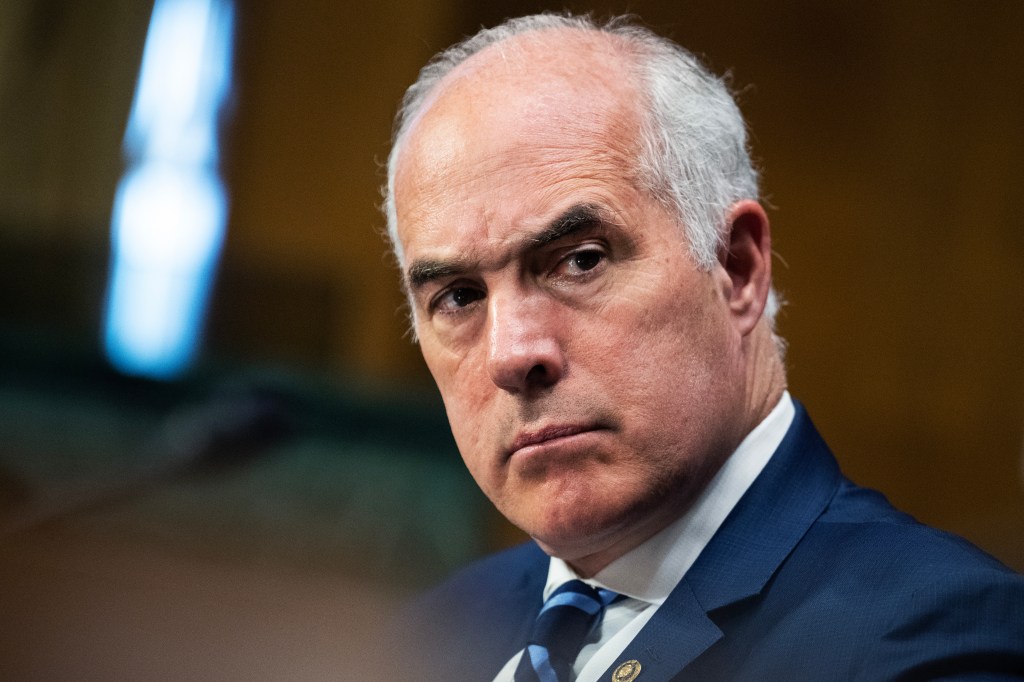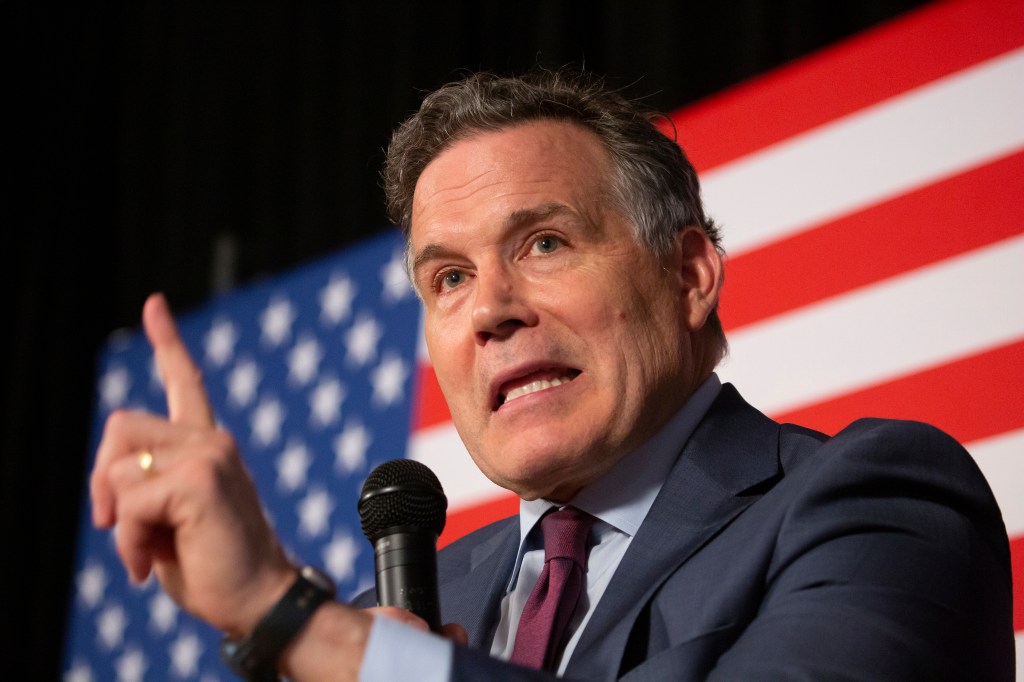Bob Casey has small stake in Chinese fentanyl manufacturer that’s flashpoint in Pa. Senate race against Dave McCormick: report
A Chinese fentanyl manufacturer — and who’s tossed money at it — has become a flashpoint in the US Senate race between incumbent Sen. Bob Casey and his Republican challenger Dave McCormick.
Third-term incumbent Casey, 64, attacked McCormick, 58, for “profiting off people’s pain” through his former gig as CEO of the hedge fund Bridgewater Associates, which invested $1.7 million in Chinese fentanyl manufacturer Yichang Humanwell under his leadership, the Philadelphia Inquirer reported Monday.
But Casey actually owns stock in Humanwell himself, according to the outlet.

As of June, he has about a three-cent stake in the company through an index fund that’s part of a mutual college savings fund, which he doesn’t control himself, the Inquirer reported.
“With his ad, Bob Casey has put his own hypocrisy and lies on display, and it’s proof of why Pennsylvanians are so tired of career politicians,” McCormick said in a statement to the paper Friday.
“Casey has had 18 years to secure our border and prevent fentanyl from killing 100,000 Americans last year alone — under his weakness, this crisis has worsened beyond imagination.”
The Democrat, meanwhile, pointed to the fact that he never directly chose to invest in Humanwell, while he claimed McCormick did.
“David McCormick will say anything to try and cover up how he sold out Pennsylvanians for profit, but the facts are clear: He directly invested millions in Chinese fentanyl and profited off Pennsylvanians’ pain,” Casey spokesperson Maddy McDaniel told the Inquirer.
“David McCormick decided to invest in a Chinese fentanyl company and Bob Casey never did.”

Fentanyl has caused the fatal overdoses of 4,000 people in Pennsylvania last year alone.
But tracing its path into the US is often murky and far from straightforward.
For instance, Humanwell, China’s largest fentanyl producer, only manufactures legal fentanyl intended for medical use in the country and it says it doesn’t export to the US.
Still, most of deadly drug that ends up in the US is produced in China before it’s brought into Mexico where it’s then mixed with other drugs to create a fatal cocktail. From Mexico, it’s often smuggled across the border into the US through legal ports of entry.
It’s hard to know 100% for sure that Humanwell’s product doesn’t wind up in America given the illicit nature of the drug trade, the Inquirer noted.







